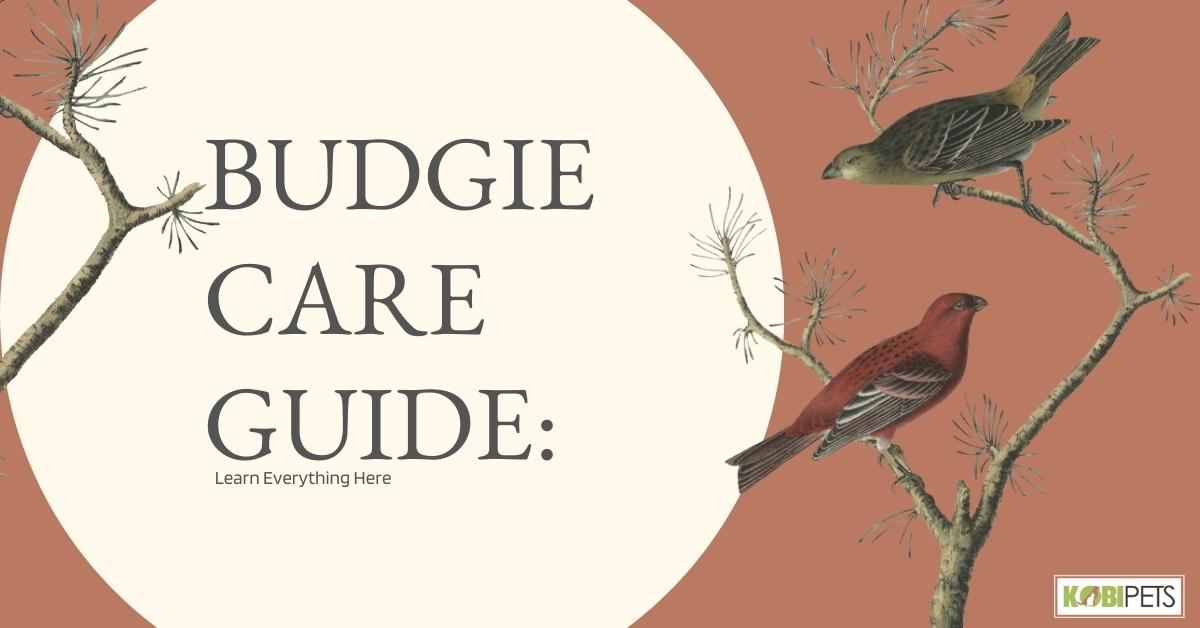
Budgies make wonderful pets, but they require proper care and attention in order to remain healthy and happy. From nutrition to housing, exercise and play activities, health prevention measures, veterinary care, and behavior – there are many aspects of caring for a budgie that you should be aware of.
In this guide, we’ll walk you through all the steps involved in caring for your new feathered friend – from housing to diet, exercise and play, health and veterinary care, and behavior.
Importance of Proper Care of Budgies as Pets
Proper care of a budgie is essential in keeping your pet healthy and safe. Budgies are social animals that require daily interaction and attention from their owners. They also need to eat a high-quality diet, with fresh fruits and vegetables providing extra nutrition and enrichment.
An appropriate environment needs to be provided as well, including a roomy cage with perches and toys suitable for a budgie. The cleanliness of the cage is paramount, as the bird’s health can be compromised if the environment is soiled or contaminated in any way.
Finally, regular neurologic and physical examinations by an avian veterinarian are important for the early detection of any potential health concerns. By providing proper care for your budgie you will have a long, healthy relationship with your feathered friend!
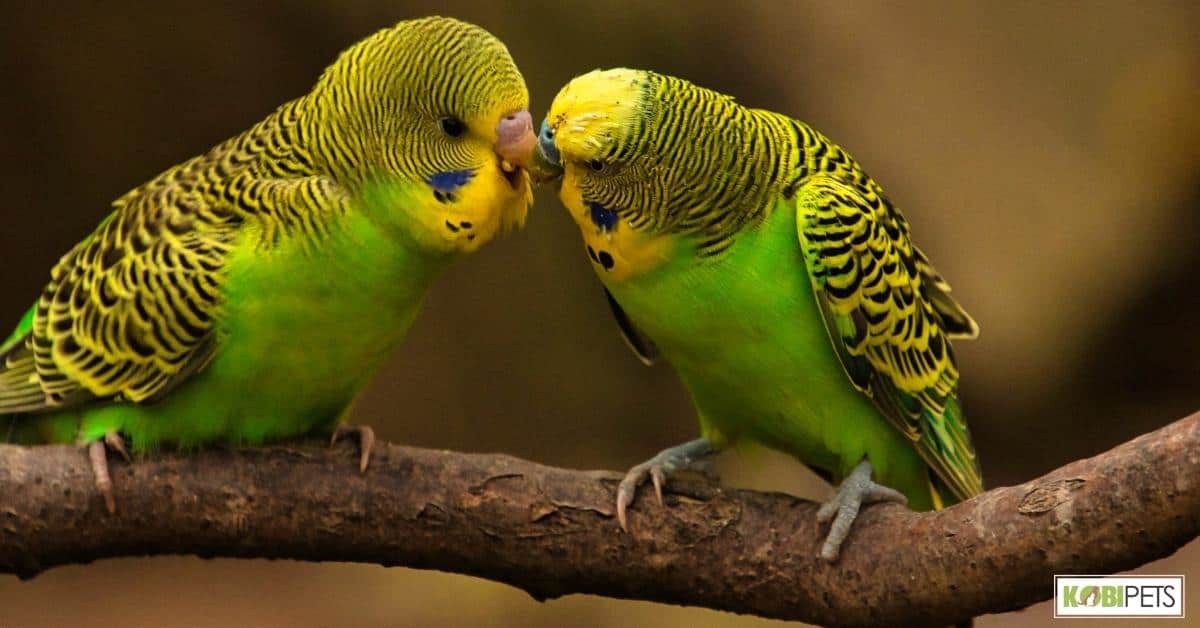
Housing for Budgie as Pets
Cage Size
Keeping a pet budgie in the home requires an appropriate-sized cage to ensure the health and safety of your pet. This ensures that your bird won’t become stuck or injured in any way while inside its home. With these tips in mind, you’ll be able to find the best-size cage for your pet budgie!
Note: It’s important to provide ample space for your pet budgies to fly and play, so aim for the largest cage possible within your space constraints.
Cage Placement
Cage placement is an integral part of having a healthy and happy budgie as a pet. The cage should be located in a place that is well-ventilated, away from drafts but also away from direct sunlight and heat sources which can lead to overheating.
Budgies are highly active little birds so optimal visibility of people or activities going on in your home will provide them with the necessary mental stimulation. Avoid placing the cage in the kitchen or any other place where you are likely to be cooking, as smoke, steam, and strong odors can all be dangerous for budgies.
Make sure that no hazardous materials or objects such as aerosol cans, cleaning products, fans, or hanging cords are close by when placing the cage. With adequate thoughtfulness given to finding the right spot to house your budgie, both you and your pet bird are sure to enjoy many happy years together!
Cage Accessories
When choosing cage accessories for housing budgies as pets, it is important to consider the safety, comfort, and entertainment of the bird. Perches of different sizes can be installed in the cage to provide a comfortable place to rest and roost.
Toys are also necessary for enrichment and stimulation; these can vary from ropes or swings to even toys filled with treats or seeds that give budgies something to chew on while encouraging natural behavior. Additionally, dishes should be provided for food and water so that your budgie can easily access them at all times.
Finally, be sure to add some hiding spots such as boxes or tunnels so that your pet bird has a safe place where it can feel secure and hide away when needed. With these few simple steps, you will ensure your budgie has everything they need and more for an enjoyable home life.
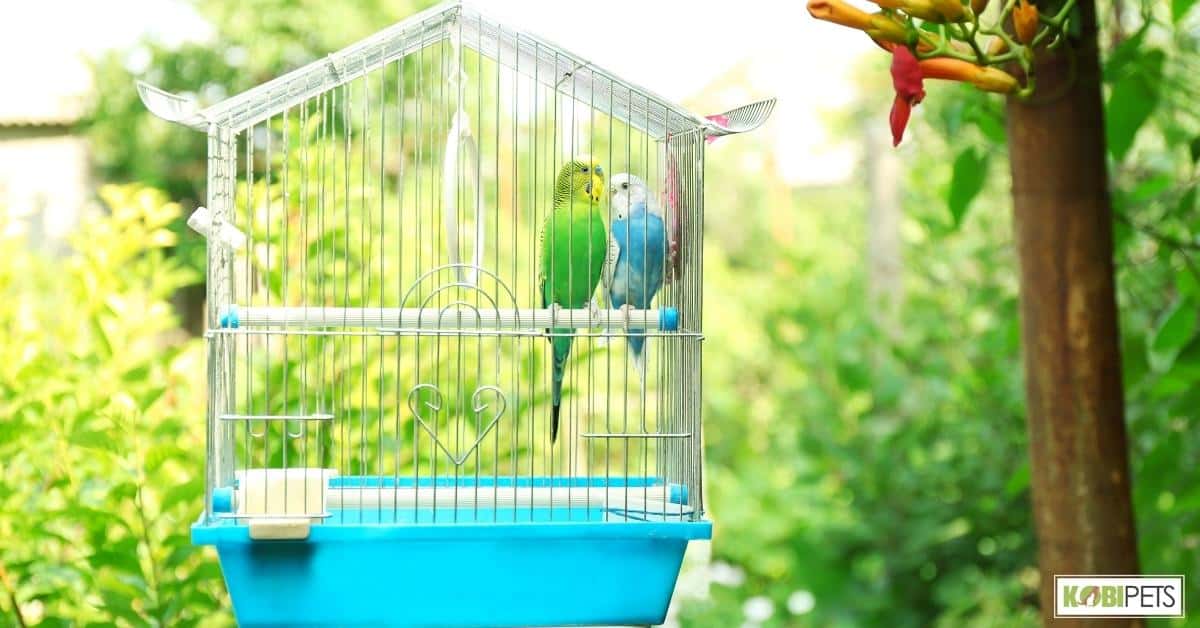
Diet for Budgie as Pets
Types of Food
When planning what to feed your pet budgerigar (a.k.a budgie), it’s important to keep in mind that a balanced diet is key to their overall health and well-being. Whether you are a novice or an experienced bird keeper, you can use this guide as a starting point for designing a nutritionally complete diet for your pet budgie.
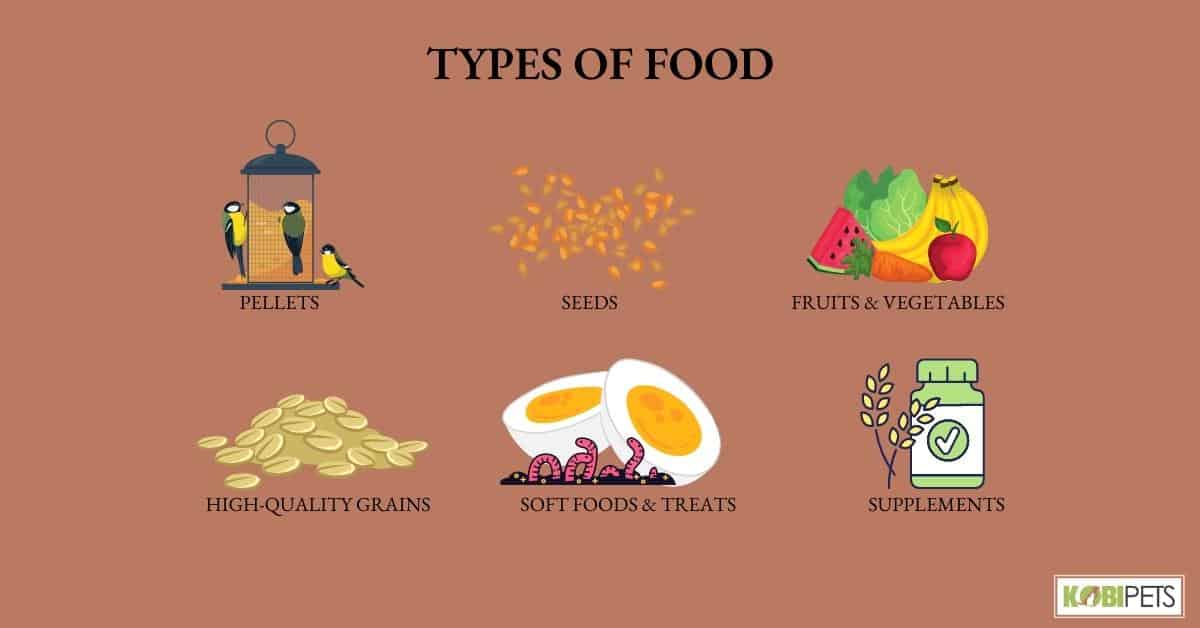
Types of Food
- Pellets: Commercial bird pellets are designed to provide your budgie with a balanced diet and should make up the majority of their meals.
- Seeds: Budgies love eating seeds and they can be used as treats throughout the day or as part of their daily diet.
- Fruits & Vegetables: Budgies can benefit from fresh fruits and vegetables that are either diced or mashed into small pieces for easy consumption.
- High-Quality Grains: Cooked grains such as quinoa, millet, and oats provide valuable nutrition for your budgie and should be served in moderation.
- Soft Foods & Treats: Soft foods and treats, such as hard-boiled eggs and mealworms, can be offered to your budgie as part of a healthy diet.
- Supplements: Vitamin supplements are critical for optimal health in pet birds and should be administered on the advice of an avian veterinarian.
Feeding Schedules
If you are considering taking on the responsibility of being a Budgie pet parent, feeding schedules for the diet are an important topic to become familiar with. Generally speaking, having a balanced nutrition plan is key to healthy development and keeping your Budgie content and healthy.
| Food Type | Feeding Schedule |
|---|---|
| Seed Mix | Offer the seed mix in a bowl or feeder twice a day. You can also offer some greens and fruit as part of the daily diet. |
| Millets | Millets such as millet sprays, panicum, white proso, and Japanese are ideal for budgies. Offer a few times a week. |
| Fruits & Vegetables | Budgies love to snack on fruits and vegetables that are rich in vitamins and minerals. Provide 1-2 times per week as part of their weekly meal plan. |
Supplements
Pet bird owners looking to supplement their budgie’s diet should research healthier alternatives to traditional pellet diets. Avocado, sprouted grains, and millet are all excellent sources of nutrition for these small birds.
Additionally, with careful planning and preparation, pet birds can benefit from greens like kale, lettuce, or even seaweed. In order to keep your pet bird healthy and its feathers glossy, a balanced diet is essential.
As the owner of a pet budgie, it is important to know that the kinds of supplements you decide on will vary depending on your bird’s age and activity level. It is best to consult with a veterinarian for advice about what supplements might work best for your budgie’s particular situation.
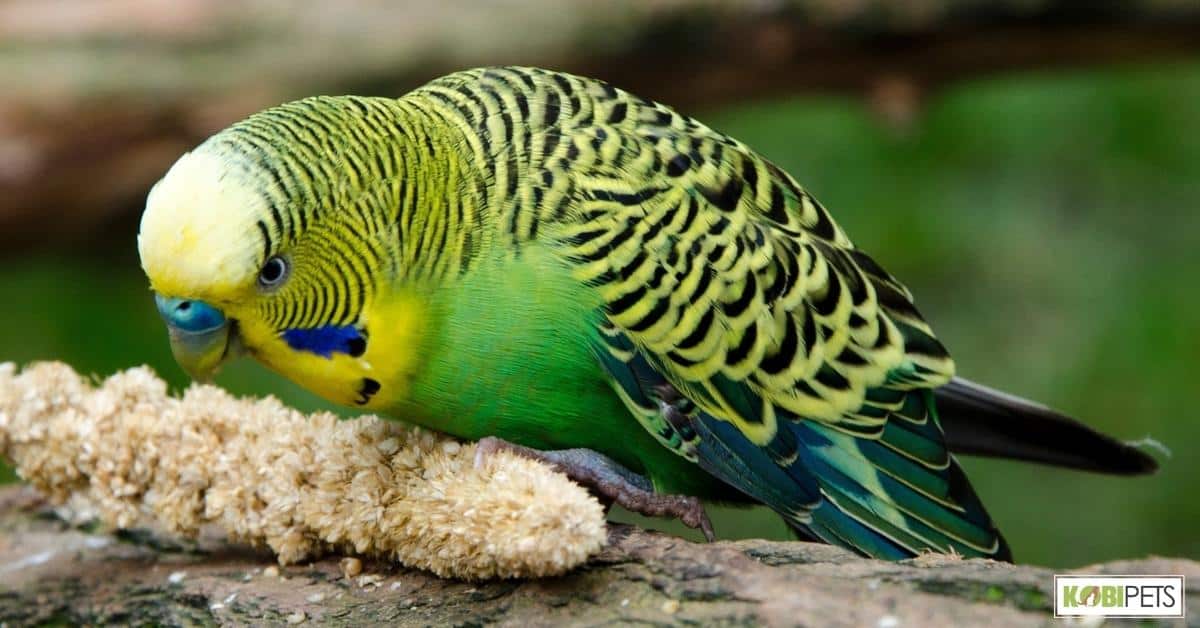
Exercise and Play for Budgie as Pets
Toys and Activities
Keeping pet budgies active and engaged is important for maintaining their health and well-being. Owners should invest in a variety of toys that encourage the birds to exercise, forage, chew, preen, and manipulate.
Examples of available activities include colorful ladders or swings and puzzle boxes to contain treats; all designed to engage a parakeet’s curiosity. One of the simplest but most entertaining methods is to hang items like mirrors or bells from their cage – not only are they intrigued by the noise and reflections, but these items also provide stimulation through sight and sound.
As budgies enjoy flying around their home environment, owners can use items such as perches with ropes or even bird tents stored with fresh fruit treats to give them an exciting playground to explore!
Out-of-Cage Time
Enriching the environment of your pet budgie is essential to their physical and mental health. Out-of-cage time for your budgie can provide them with daily exercise and play opportunities, which is important for any pet bird.
This kind of activity encourages the use of natural behaviors such as hopping, flying, climbing, and foraging. It also helps maintain healthy levels of muscle mass and energy. Out-of-cage time is not just about physical exercise. It’s also about stimulation and psychological enrichment.
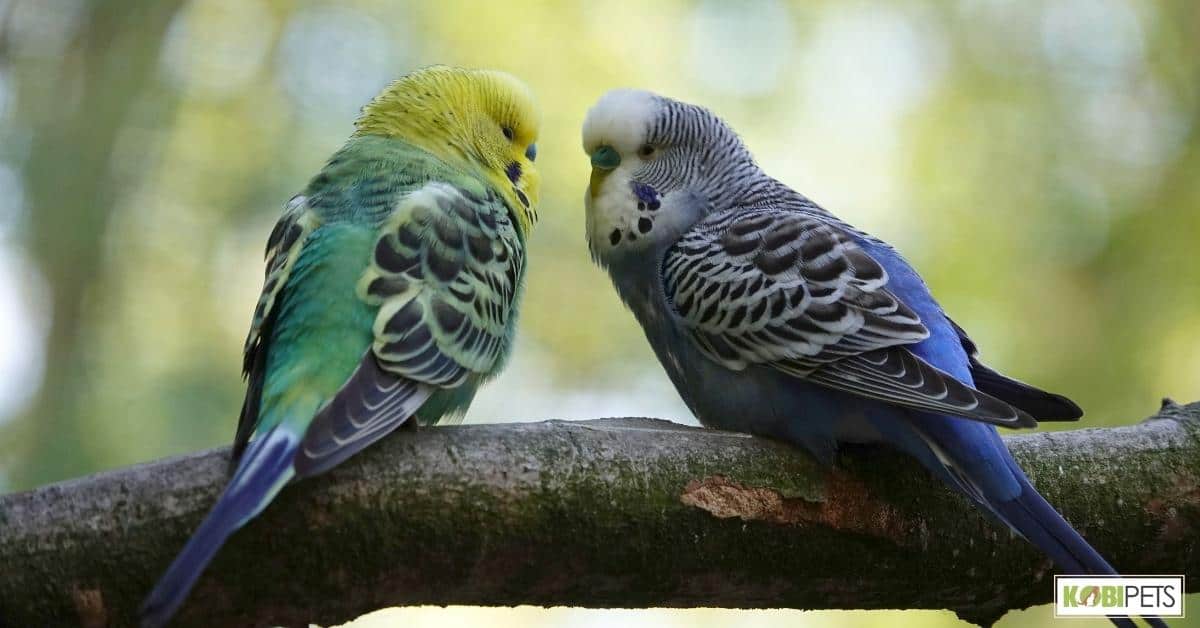
Health for Budgies as Pets
Signs of Illness
Having a pet budgie can be an incredibly rewarding experience. They are social animals and can bring companionship and joy. As with any pet, though, it is important to know the signs of illness so that if they become unwell you can get them to vet care as soon as possible.
If a budgie won’t eat, stops playing or preening has labored breathing or ruffled feathers, these can all be signs of ill health. Other signs include listlessness and no mobility as well as changes in droppings. By knowing these symptoms ahead of time you will better be able to recognize if your budgie needs additional care.
Preventive Measures
Keeping pet budgerigars healthy and happy is no small feat, but with a little research and preparation, anyone can keep their own fluffy feathery friend in perfect trim. The most important preventive measure to ensure the health of a budgie is to feed it an appropriate diet.
An ideal diet consists of a variety of seeds, leafy greens, fruits, grains, and fortified pellets. Additionally, when providing fresh foods that can spoil easily such as seeds and fruits, it’s best to provide only what he can eat in one day so those items don’t become contaminated.
It’s also beneficial to create interactive play environments inside and outside the cage by providing Budgies with appropriate toys (depending on their size) and different perches so they will get enough exercise.
Since every owner’s living space varies in temperature, the removal of extra bedding like large bags of wood shavings from the bottom of the cage during hot weather or adding extra nesting material during cooler months may be necessary for comfort.
Not being able to properly regulate their body temperature might put them at risk for dyspnea – or lung inflammation – or avian heatstroke. Regular veterinary checkups are also essential for the assessment of your Budgie’s overall health; indoor birds need annual check-ups while outdoor ones should visit twice a year.
Veterinary Care
Veterinary care is a key part of providing your budgie, or parakeet, with the best quality of life. An annual checkup is recommended to ensure that your pet remains healthy and enjoys life to its fullest.
During the exam, the vet can screen for potential health concerns as well as answer any questions you may have about caring for your bird. For instance, your vet can advise you on diet and nutrition, suggest various types of enrichment activities, and offer resources for any additional concerns such as housing or handling.
If a health issue is identified during an exam, early detection may facilitate faster recovery or even prevent further complications in some cases. Most importantly, regular veterinary care helps build a trusting relationship between you and your pet.
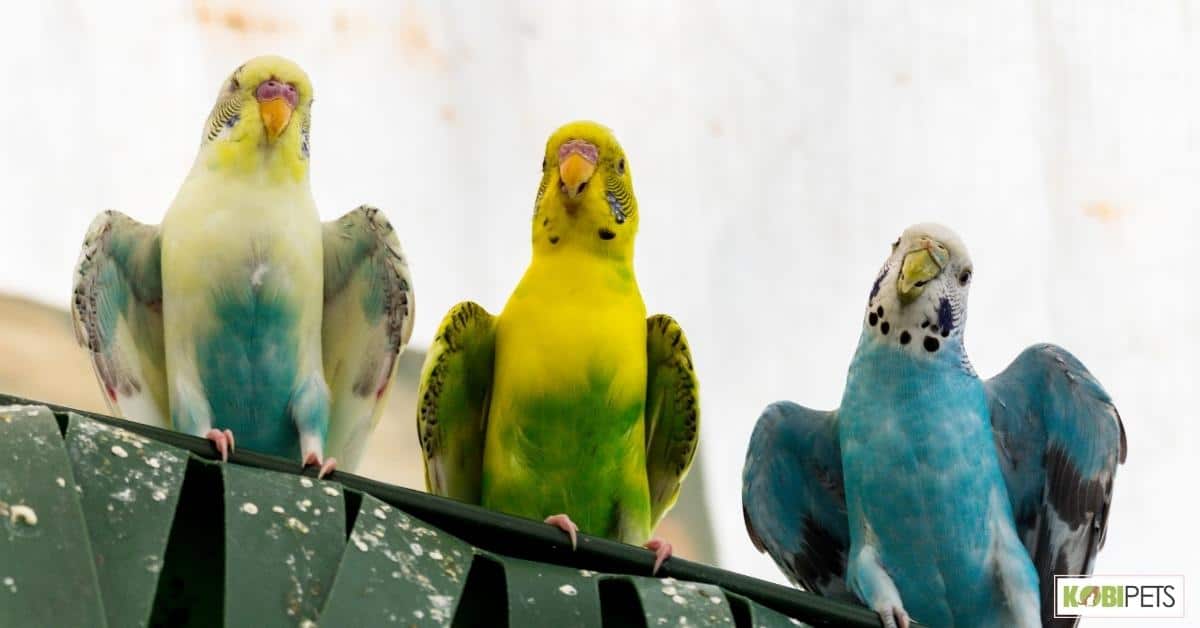
Behavior for Budgies as Pets
Bonding with Your Budgie
Bonding with a budgie is an incredibly rewarding and enjoyable experience. Many bird owners overlook the importance of bonding with their pets and as a result, both the owner and the bird miss out on some of the experiences they could be sharing.
Building a successful bond between yourself and your budgie takes time and patience, but is far from impossible! You can start simple – talk to your budgie in a calming voice, or offer them gentle scratches that they might enjoy. Don’t worry if things don’t go perfectly right away; just like any relationship, it takes commitment to success over time!
Training and Discipline
Proper training and discipline for your budgie are essential for ensuring that they remain healthy and happy in their environment. Learning to speak properly, using potty training techniques, or teaching it the proper way to respond to behavioral cues can help your budgie thrive.
Training a budgie is not a task that should be taken lightly; it requires patience, compassion, consistency, and skill. It is important to remember that most budgies will pick up on how you are feeling; if you are feeling angry or frustrated, try taking a few moments for yourself before returning as a calm presence.
Think about rewards rather than punishments when disciplining your budgie; providing them with an opportunity to understand what needs improvement will allow them to make positive choices more easily. Keeping meetings short is recommended, as longer meetings can overwhelm them.
By investing the time into forming a sturdy relationship with your budgie now through proper training and discipline techniques, you can ensure that the two of you will have many pleasant experiences together in the future.
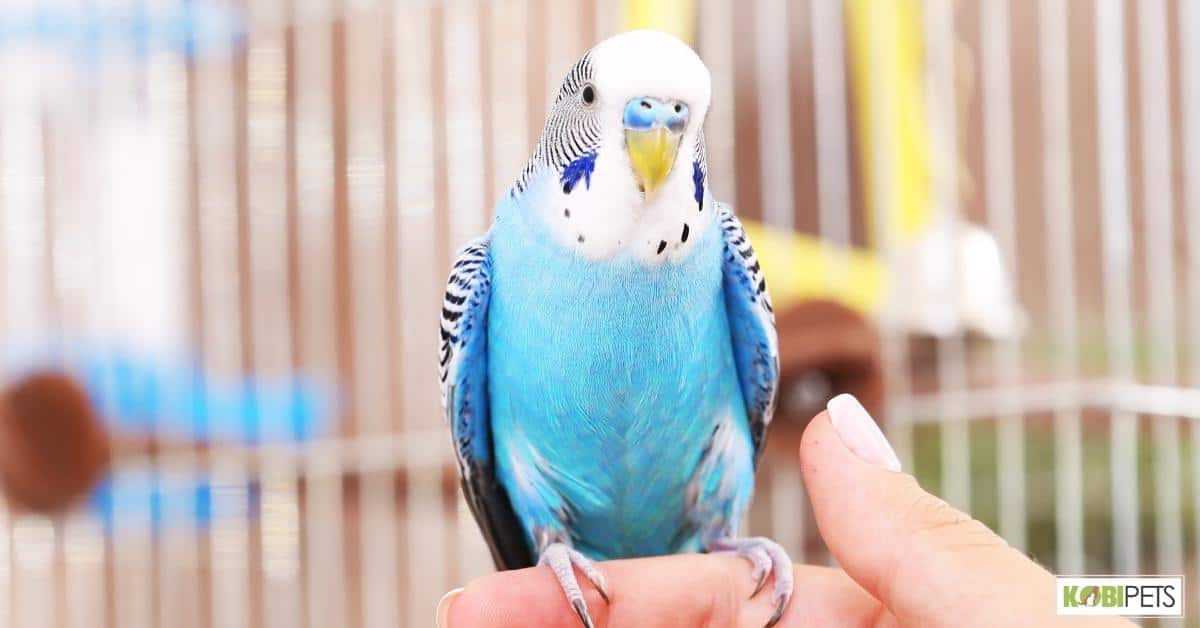
In Conclusion
Budgies can make wonderful pets with the right care and affection. When setting up a home for your pet budgie, it is important to find an optimal location in your house that offers good visibility and ventilation but is also away from direct sunlight or heat sources. You should add cage accessories like perches and toys as well as provide them with a healthy, balanced diet.
In order to ensure that your budgie is living its best life, it’s also important to provide interactive play activities both inside and outside of their cage as well as out-of-cage time for exercise and stimulation. Additionally, regular veterinary checkups should be done to ensure that your budgie is healthy and happy.






